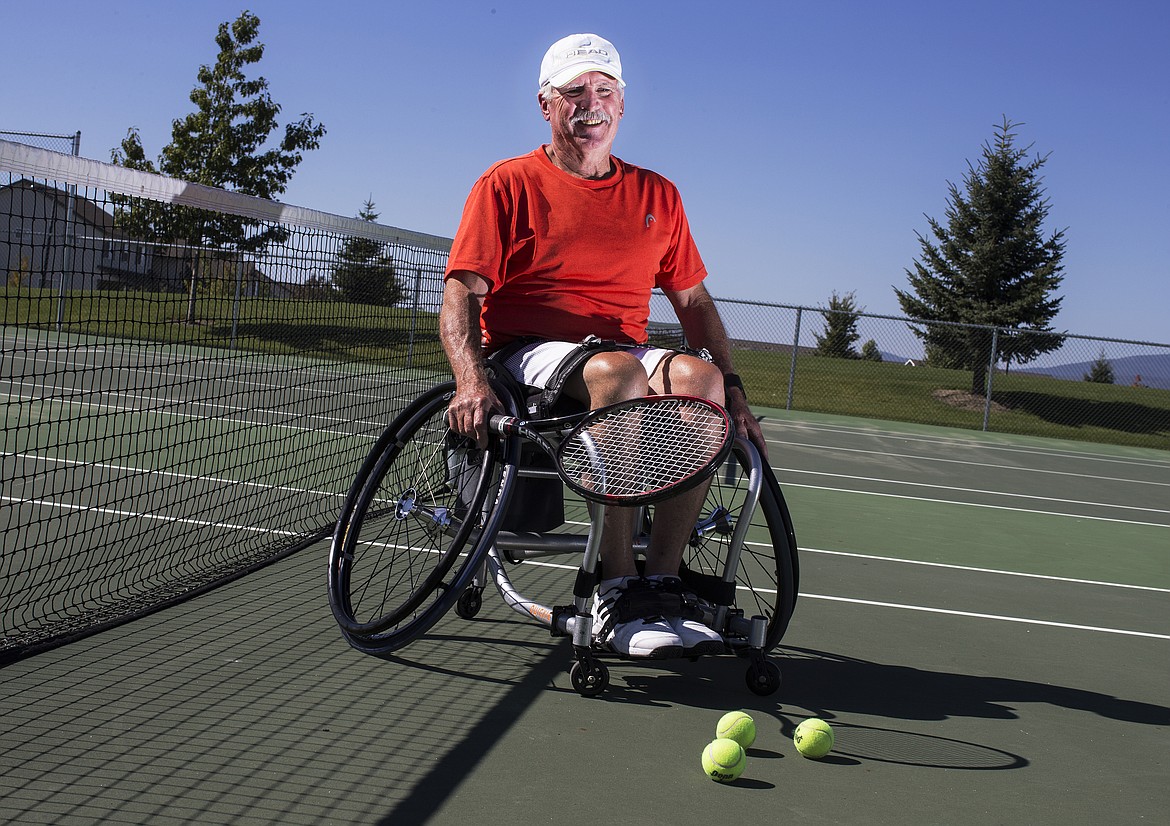Vietnam vet shines on the tennis courts
Sometimes it's a smell. Other times it's a sound or taste.
Those senses can spiral Dana Mailloux into a post traumatic stress disorder-induced episode. Occasional nightmares still cause the 67-year-old to relive the horrors from his two years in the jungles of Vietnam.
Compounding the former Marine corporal's psychological malady is nerve damage from the Agent Orange herbicides that often coated his skin during the war.
Mailloux has somehow lived a stable and able-bodied life though, retiring from the Long Beach (Calif.) Fire Department after 26 years before making the move to Hayden, a decade ago.
It wasn't until the last few years that Mailloux's knees began to wither. He lost most of the meniscus of his right knee, which warranted a prosthetic knee. That, coupled with the nerve damage in his legs, was enough to eventualy relegate him to a wheelchair.
An active lifestyle was a major component in his 46-year battle with PTSD. Confinement to a wheelchair, however, often left him alone with his thoughts and ensuing depression.
There was another avenue, though, one Mailloux's wife, Pamela Muno, a former tennis player at the University of Hawaii and USTPA certified coach, made him aware of: wheelchair tennis.
He had never played the sport competitively, even at the apex of his young and able-bodied days. If he wanted a physical and emotional outlet, wheelchair tennis would have to fit the bill considering he no longer experiences any feeling in his legs.
"I don't know if I fell into (wheelchair tennis). I kind of sat into it," Mailloux joked.
Under his wife's tutelage, Mailloux learned the nuances and fundamentals of the game and how to move in the chair. She even went as far as consulting with coaches from the U.S. Paralympics team for advice on how to coach her husband.
"Wheelchair tennis isn't all that different from regular tennis," Muno said. "He has a wonderful work ethic and was willing to learn."
The chair he was playing in initially wasn't exactly geared for the swift, constant movement that came with his newfound sport. That prompted him to submit an application to the Spokane Veterans Affairs office, hoping to garner a new chair.
The VA granted his request and by January 2015, he was competing in his first tournament.
"The Spokane VA went above and beyond to get him that tennis-specific chair," Muno said.
At a sizable tournament in Indian Wells, Calif., Dana advanced to the men's quarterfinals in singles and punched a ticket to the semifinals in men's doubles.
He quickly developed the sort of fervor he had for firefighting — he "loved to carry the hose and wanted to go into houses, boats and airplanes when they were on fire" — with wheelchair tennis.
Health-wise, his training — he works out three days a week at Peak Fitness in Hayden — is also paying dividends. He has lost 30 pounds and feels as good now as when he had the use of his legs.
"When I stopped using my legs I was experiencing depression, which isn't good for someone with PTSD," he said. "Then I started feeling something in sports. I feel good about myself and life in general because of tennis."
At the Pacific Northwest Championships in Salem, Ore., Mailloux knocked off the No. 1 seed in singles, where he finished runner-up in the B Division. In doubles, he teamed up with Phil Peabody to win the tournament title.
He is often pitted against players 20 to 40 years younger, and he hopes that with more experience, he can ascend to the A Division.
Not far from 70, Mailloux is just getting started.
"You can sit and moan and complain and die, or you can do something about it," he said. "You can put up a fight and move on.
“I just chose to not sit and die."



